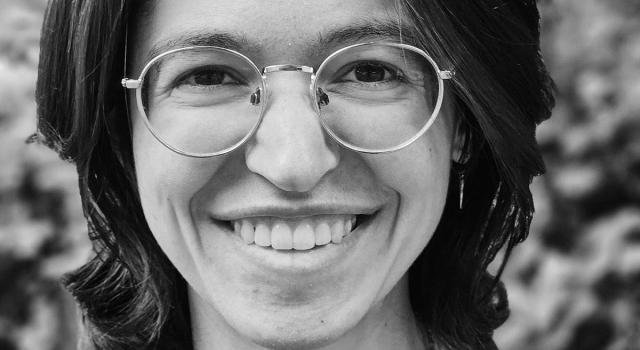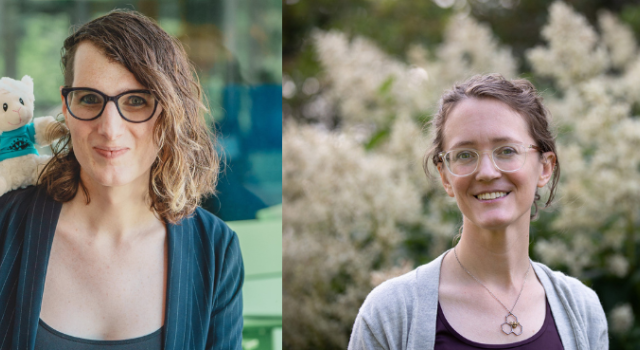Q&A with Ass't Professor of Theatre Mei Ann Teo
Assistant Professor of Theatre Mei Ann Teo recently began her first year at Hampshire after earning her M.F.A. from Columbia.
Welcome to Hampshire. Is this your first job after grad school?
I wouldn’t say my first job. After graduating from Columbia, I decided I didn’t want just any job. I wanted to allow myself to have the time outside of school to explore different ways of working and thinking. I spent a year and a half as a nomad. I spent four months at the Oregon Shakespeare Festival as the Phil Killian Directing Fellow. I was a recipient of the Hemera Foundation Tending Space Fellowship, where they supported me to have contemplative, reflective practices, particularly in meditation and yoga. During that time, I made a piece called Labyrinth for the Beijing International Festival. I went traveling in Myanmar, Japan, Singapore, Malaysia, and New Zealand. I meditated in Zen monasteries all over the world, and did residencies in theatre and meditation in New York as well. It was a pretty extraordinary time.
What projects are you working on?
I’m directing a play called The Shape of a Bird at the M1 International Singapore Fringe Festival in January. It’s a play by Jean Tay, about a writer in an “imagined country.” It’s an oppressive system and she’s being held for the fact that her work is inspiring protests in the country. Jean is a Singaporean writer, and I’m Singaporean, I was born there, and still have Singaporean citizenship. I consider myself fully Chinese Singaporean and fully Asian American at the same time, in terms of racial cultural identity.
We’re doing this in a country that imprisoned and institutionalized a sixteen-year-old for making a YouTube video last year. It’s very interesting to me, because in our workshops in July, we really got to talk about what it means to censor, what it means to be afraid of the effects of alternative thinking from the grand narrative that’s handed down, in order to maintain peace, in order to maintain what’s supposedly good for all.
Another project I’m working on is an adaptation of a comic book called Dim Sum Warriors. It’s set in a futuristic place where all the characters are dim sum, which is like Chinese tapas, and they fight kung fu. It’s a fantastic story because it sounds really hilarious and absurd, but as you read the story and peel back all the layers of class and privilege, it reveals all of the ills of society and what we do to each other because of greed, and quite profoundly this is told with singing dumplings who fight kung fu.
What advice would you give to someone on how to practice fearlessness?
First of all, it’s a practice, right? You never really get there, it’s sort of the natural way the world works, it sort of creeps up. You’re always given messages—you’re not beautiful enough, not this enough, not enough. That triggers all that fear—you’re always going to get messages about that, even when the messages are like “Be unique, wear [this brand].” It’s a practice, it’s something to continually do.
I lean into it, I move toward it, if I think that I might not be able to do that, or that’s feeling a little bit uncomfortable. I lean into the discomfort a little bit. Not to the point of being unsafe, there’s a difference. It’s actually the practice of clarity, of really trying to see what’s there. Is this a weird situation because you’re a danger to me or are all of my self-esteem issues coming up and I don’t feel cool enough with you, or I don’t feel cool enough to be in this space? What is the practice of clarity first? How do I negotiate all the stuff that’s going on?
What’s your nonacademic alter ego doing right now? What do you do for fun outside of theatre and outside the classroom?
I’m a social dancer, so I do lindy hop and blues and a little bit of tango and salsa, I really love that. I’ve also decided that I’m not going to just see theatre, that I’m going to participate in the world in a lot of other ways, one being listening to incredible speakers. It’s not separated from my educator self; it’s the other side of it, always wanting to learn, and always being a student.
One more question: What’s your hypothetical dream class to teach?
I do that with every class I teach! One class I really want to teach with other professors here is a class on pattern. I want to teach it with a neuroscientist, a critical historian, a dancer, someone from every field. I’m fascinated by uncovering the patterns in our bodies, and brains, how they manifest into our behavior and our histories, and how that determines the cycles we go through in terms of humanity. And to be able to see that more clearly so that we can break it, or we can see how it’s broken, and when it actually is, sort of, moving forward—is there anything such as progress? I believe there is. I feel it evident.



